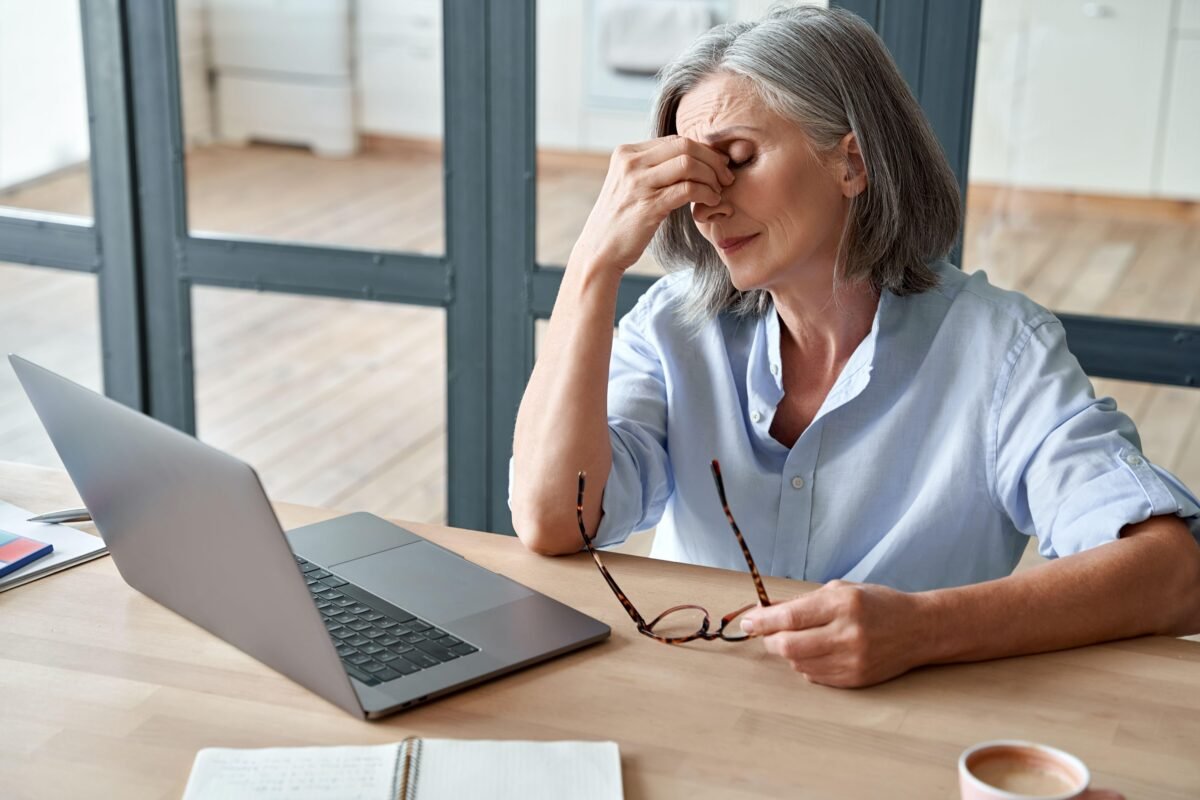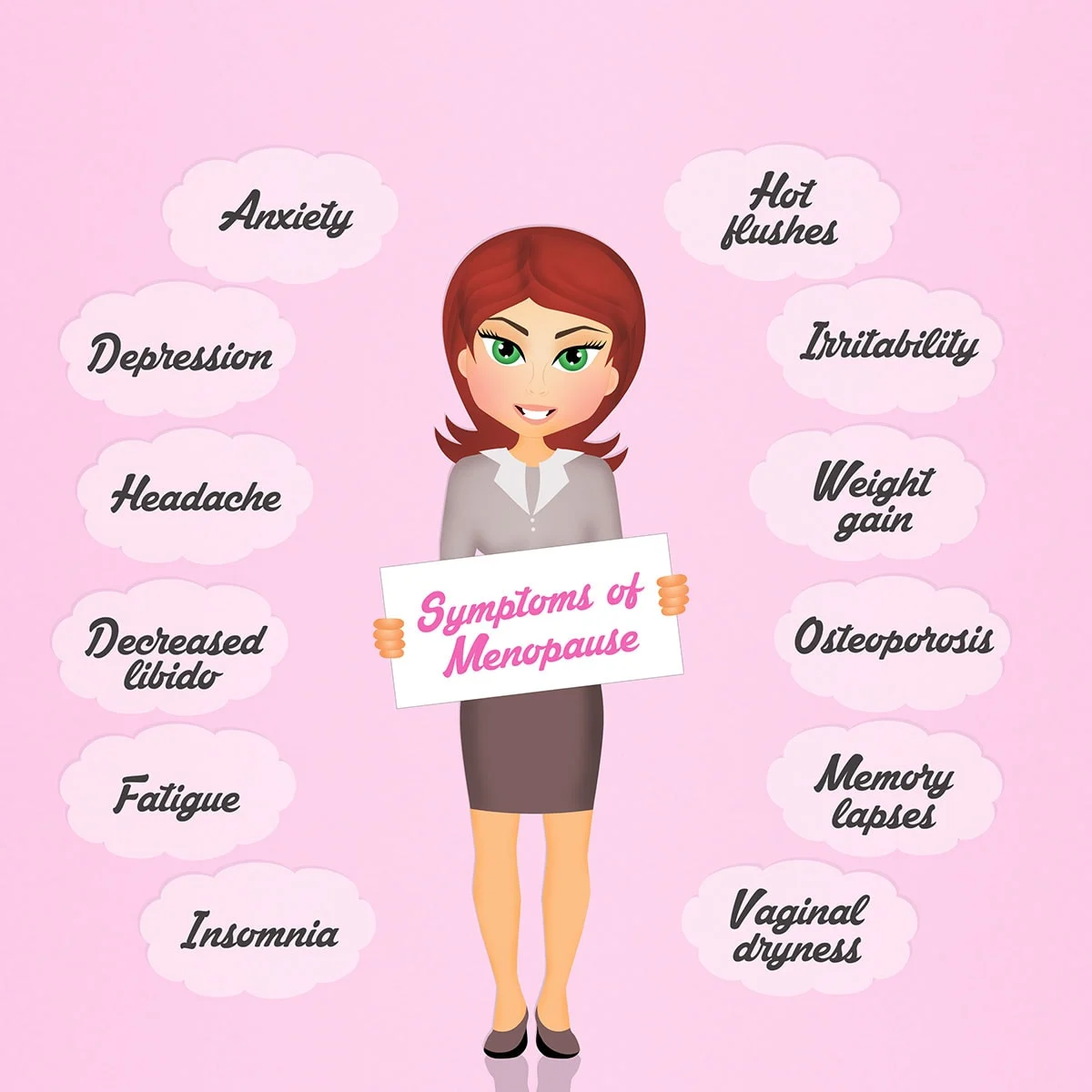Menopausal Problem
Menopause occurs when a woman hasn’t menstruated in 12 consecutive months and can no longer become pregnant naturally. It usually begins between the ages of 45 and 55, but can develop before or after this age range.
What are the symptoms of menopause?
Every woman’s menopause experience is unique. Symptoms are usually more severe when menopause occurs suddenly or over a shorter period of time.
Conditions that impact the health of the ovary, like cancer or hysterectomy, or certain lifestyle choices, like smoking, tend to increase the severity and duration of symptoms.

Aside from menstruation changes, the symptoms of perimenopause, menopause, and postmenopause are generally the same. The most common early signs of perimenopause are:
- less frequent menstruation
- heavier or lighter periods than you normally experience
- vasomotor symptoms, including hot flashes, night sweats, and flushing
An estimated 75 percent of women experience hot flashes with menopause.
Other common symptoms of menopause include:
- insomnia
- vaginal dryness
- weight gain
- depression
- anxiety
- difficulty concentrating
- memory problems
- increased urination
- dry skin, mouth, and eyes
- increased hair growth on other areas of the body, such as the face, neck, chest, and upper back
- sore or tender breasts
- headaches
- racing heart
- urinary tract infections (UTIs)
- reduced muscle mass
- painful or stiff joints
- reduced bone mass
- less full breasts
- hair thinning or loss
- reduced libido, or sex drive

Complications
Common complications of menopause include:
- vulvovaginal atrophy
- dyspareunia, or painful intercourse
- slower metabolic function
- osteoporosis, or weaker bones with reduced mass and strength
- mood or sudden emotional changes
- cataracts
- periodontal disease
- urinary incontinence
- heart or blood vessel disease
Home remedies and lifestyle changes
Beside medications, there are several ways to reduce minor-to-moderate menopause symptoms naturally, using home remedies, lifestyle changes, and alternative treatments.
Here are some at-home tips for managing menopause symptoms:
Keeping cool and staying comfortable
Dress in loose, layered clothing, especially during the nighttime and during warm or unpredictable weather. This can help you manage hot flashes.
Keeping your bedroom cool and avoiding heavy blankets at night can also help reduce your chances of night sweats. If you regularly have night sweats, consider using a waterproof sheet under your bedding to protect your mattress.
You can also carry a portable fan to help cool you down if you’re feeling flushed.
Exercising and managing your weight
Reduce your daily calorie intake by 400 to 600 calories to help manage your weight. It’s also important to exercise moderately for 20 to 30 minutes a day. This can help:
- increase energy
- promote a better night’s sleep
- improve mood
- promote your general well-being
Communicating your needs
Talk to a therapist or psychologist about any feelings of depression, anxiety, sadness, isolation, insomnia, and identity changes.
You should also try talking to your family members, loved ones, or friends about feelings of anxiety, mood changes, or depression so that they know your needs.
Supplementing your diet
Take calcium, vitamin D, and magnesium supplements to help reduce your risk for osteoporosis and improve energy levels and sleep. Talk to your doctor about supplements that can help you for your individual health needs.
Practicing relaxation techniques
Practice relaxation and breathing techniques, such as:
- yoga
- box breathing
- meditation
Taking care of your skin
Apply moisturizers daily to reduce skin dryness. You should also avoid excessive bathing or swimming, which can dry out or irritate your skin.
Managing sleeping issues
Use OTC sleep medications to temporarily manage your insomnia or consider discussing natural sleep aids with your doctor. Talk to your doctor if you regularly have trouble sleeping so they can help you manage it and get a better night’s rest.
Quitting smoking and limiting alcohol use
Stop smoking and avoid exposure to secondhand smoke. Exposure to cigarettes may make your symptoms worse.
You should also limit your alcohol intake to reduce worsening symptoms. Heavy drinking during menopause may increase your risk of health concerns.
Other remedies
Some limited studies have supported the use of herbal remedies for menopausal symptoms caused by estrogen deficiency.
Natural supplements and nutrients that may help limit menopause symptoms include:
- soy
- vitamin E
- isoflavone
- melatonin





